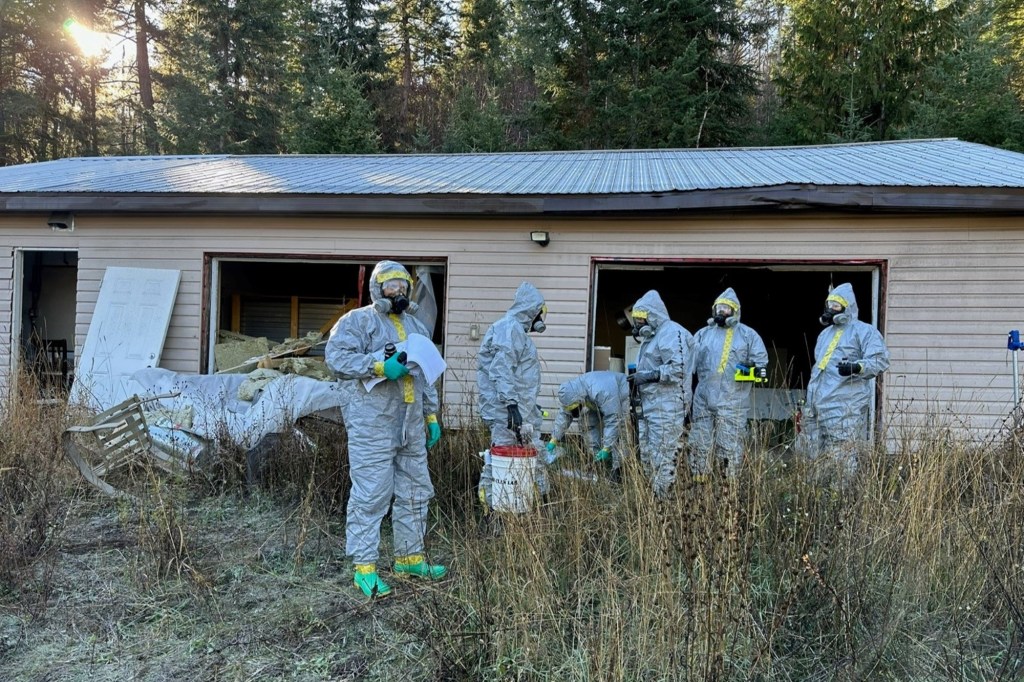More than one police officer a month resigns or is fired from their job for taking drugs in the UK, according to figures seen by VICE World News.
Data released by 41 UK police forces under freedom of information (FOI) laws shows 56 police officers and staff have resigned or been dismissed in the last four years – from 2017 to 2020 – after being found to have used illegal drugs or been in possession of them.
Videos by VICE
Ten others were disciplined after testing positive and remained at their force. Most did not face criminal proceedings after disciplinary action, though some received cautions and at least four were convicted. Other cases remain ongoing.
There were less than 100 positive drug tests during this period, according to the FOI request. But this is likely an underestimate of drug taking in the police. Unlike in the army where there are mandatory random drug tests, police forces only test officers when there are serious grounds for suspicion.
The country’s largest police force, the Metropolitan police, had by far the highest number of officers caught in connection with illegal drugs. In the force, 28 officers and staff faced action for personal drug use over between 2017 and 2020, with 12 leaving their jobs. Another four are facing disciplinary action for possession or supply.
Former Kent police officer Justin Carter was sacked and cautioned in September after 17 years service when his colleagues searched his home following his refusal of a drug test and found a jar of cannabis. Asked why he would not give a sample, he said during his interview: “I’ve done nothing wrong.” He then admitted he used cannabis “everyday”, Kent Online reported.
Earlier this year, the Metropolitan police’s former drug lead, commander Julian Bennett, was suspended from duty in July over alleged drug use. It has since been reported he was using cannabis medicinally.
Police chiefs are aware that as rising numbers of the public are using Class A drugs such as cocaine, police too are more likely to use these drugs. In 2018, Greater Manchester police officers Kerry Reeve and Adam Jackson were jailed after being found in possession of cocaine and MDMA. In text messages, they had boasted of their drug intake to each other, while it also emerged in court their dealer referred to Jackson as “my piggy pal”.
Neil Woods, a former undercover police officer who now campaigns for the legalisation of drugs, claimed there is not significant support within the force for those who have concealed their addiction to drugs.
“I’m aware of several who have been hung out to dry,” he told VICE World News. “Wherever it has been proven, they’ve been sacked and cast aside with no support. Police professional standards departments haven’t moved into the 21st century when it comes to drugs. Drug use is a great relief from stress and police officers are not immune from that. Life as a cop is more stressful than in most professions.”
North Wales police and crime commissioner Arfon Jones said he had no qualms with officers privately using cannabis – though not if they were stoned while driving – and that those who proactively engaged with the force would receive support. However, he said that officers were expected to uphold the law, and that if officers were “found out” then disciplinary proceedings would commence.
“If somebody approaches [us] to seek help because they have a drug problem, they will be looked upon compassionately,” he said of his force. “But if they’re under the influence, they’ll probably be sacked for gross misconduct. However, I think forces should deal with every case on its merits, and I have a lot of sympathy for the recreational use of cannabis.”
Jones said that although the force is diverting low level drug possession offenders away from the criminal justice system, police officers were in a “unique occupation as crown servants” and there is an “expectation that they uphold higher standards than others in society”.
College of Policing data on officers and staff who are dismissed and placed on the “police barred list” shows the category of “drug or alcohol related” made up two percent of offences for police officers and staff and four percent for special constables between 2018 and 19.
Niamh Eastwood, from the drugs information charity Release, said that although police using illegal drugs was another testament to the “utter failure” of a drug policy which sought to prevent people using drugs, police officers struggling with substance dependency needed support, not punishment.
“Police forces, like any other place of work, should have a policy for drug use that doesn’t isolate those who need support. Police leadership should work to foster an environment where employees are encouraged to seek treatment where desired, and have ready access to resources where needed. A punitive culture leaves little room for support.”
The National Police Chiefs’ Council lead for professional standards, chief constable Craig Guildford, said: “We take reports of illegal drug usage within the police service extremely seriously. Our underlying principle is to prevent substance abuse.
“If an officer or member of police staff comes forward to their manager, discloses an addiction and requests help they will be offered immediate support. This could be through a referral to occupational health, signposting to the NHS or another local service.
“A full risk assessment will always be carried out when a disclosure of addiction is made and subsequent decisions will be made on a strictly case by case basis in the interests of public safety, the welfare of the person and the wider public interest.”
More
From VICE
-

(Photo via Royal Canadian Mounted Police) -

Lauren Levis, who died after taking iboga at the Soul Centro retreat in 2024. (Photo courtesy of the Levis family) -

A sniffer dog checks bags in England, UK. Photo by Maureen McLean/Shutterstock -

Rodrigo Duterte running for president of the Philippines in 2016. (NOEL CELIS/AFP via Getty Images)



